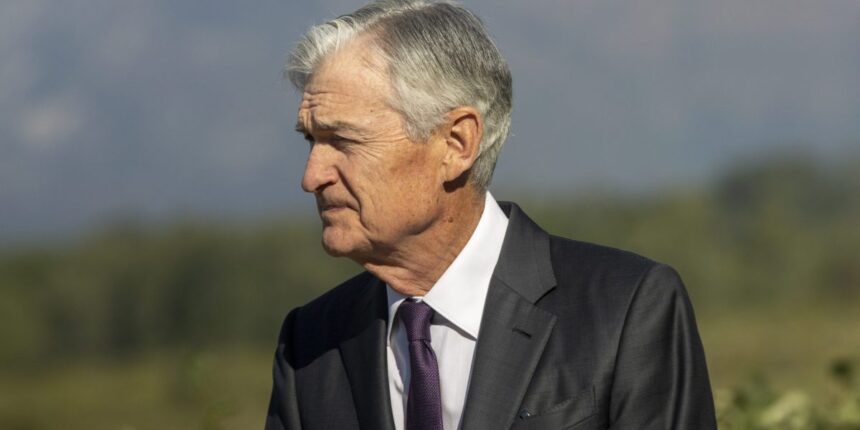As the Federal Reserve prepares for its upcoming meeting to discuss interest rates, the implications of their decisions stretch beyond mere economic growth. Recent job market data has raised concerns that the U.S. may already be entering a recession, a sentiment echoed by Mark Zandi, chief economist at Moody’s Analytics, during a recent CNBC interview. He highlighted the Fed’s urgent desire to avert such an outcome, noting that a recession would not only harm the economy but also tarnish the Federal Reserve’s independence and reputation.
Zandi argued that the Fed is particularly wary of being blamed for an economic downturn, which could significantly undermine its operational autonomy. This concern is heightened by the fact that the Federal Reserve, created by the Federal Reserve Act of 1913, derives its powers from Congress—a situation that has led some analysts to speculate on potential political repercussions if the economy falters under current leadership.
Wharton finance professor Jeremy Siegel elaborated on this notion, suggesting that Federal Reserve Chairman Jerome Powell might need to resign to preserve the institution’s long-term independence. Siegel expressed that if the economy were to weaken further with Powell in charge, it could provide political figures, including the current administration, with an opportunity to shift blame onto him. He stressed the importance of the Federal Reserve’s independence and the potential threat posed by Congress, which has the ability to amend the Federal Reserve Act and alter the structure and powers of the Fed.
Additionally, the appointment of Stephen Miran to a position on the Federal Reserve Board has raised eyebrows, especially since he has previously advocated for changes that could diminish the Fed’s autonomy. His dual role as chair of the White House’s Council of Economic Advisers and a Fed official could fuel concerns about the administration’s intentions regarding monetary policy. According to a note from JPMorgan, Miran’s appointment represents a significant risk to the Federal Reserve’s independence, given the current political landscape.
Despite increasing pressure from President Trump to lower interest rates, including attempts to dismiss Governor Lisa Cook, the Fed has largely resisted the calls until now. However, the recent downturn in job numbers has shifted the likelihood of a rate cut to near certainty. The upcoming Fed meeting on Tuesday and Wednesday has Wall Street abuzz, with speculation centering on whether rates will be lowered by 25 or 50 basis points from the current range of 4.25% to 4.5%.
According to JPMorgan chief U.S. economist Michael Feroli, there may be dissenting voices within the Fed advocating for a larger cut. During the last meeting, governors Christopher Waller and Michelle Bowman dissented from their peers, pushing for a modest quarter-point reduction, and may again dissent if the vote leans toward a larger cut this time. Feroli anticipates Miran to join this faction advocating for a more significant reduction.
Zandi also offered a perspective on future rate cuts, suggesting that while a half-point reduction may be challenging to achieve, the bar for such a move could be crossed if economic conditions deteriorate further. He reiterated JPMorgan’s forecast of multiple cuts over the next few years, reflecting a potential neutral rate for the fed funds rate between 2.5% and 3%, contingent on the health of the economy and the associated risk of a recession.
As these discussions unfold, the Federal Reserve finds itself at a crossroads, with daunting economic indicators and pressing political pressures shaping the path ahead. The outcomes of their upcoming meeting could have lasting implications for the U.S. economy and the integrity of the central bank itself.





